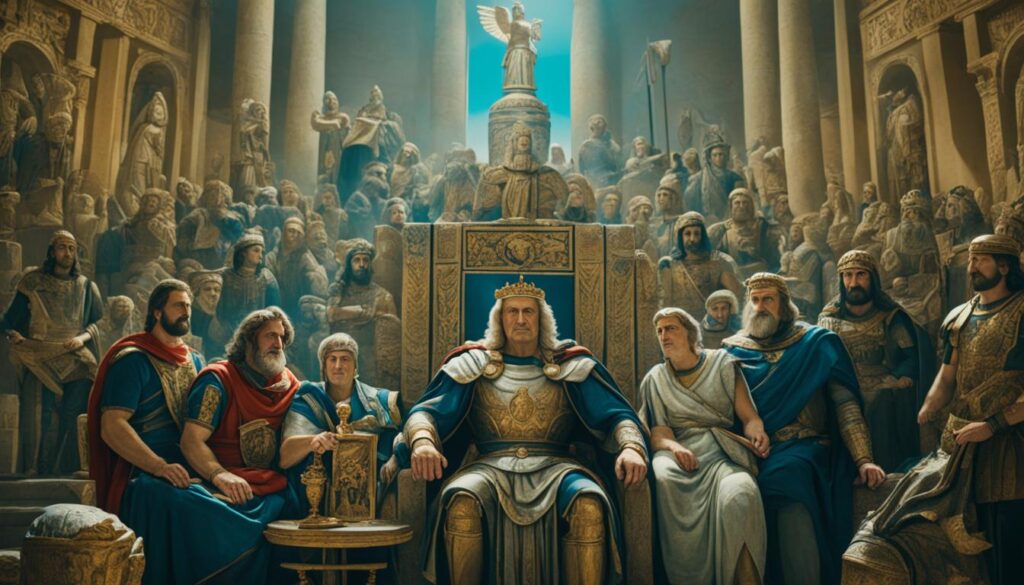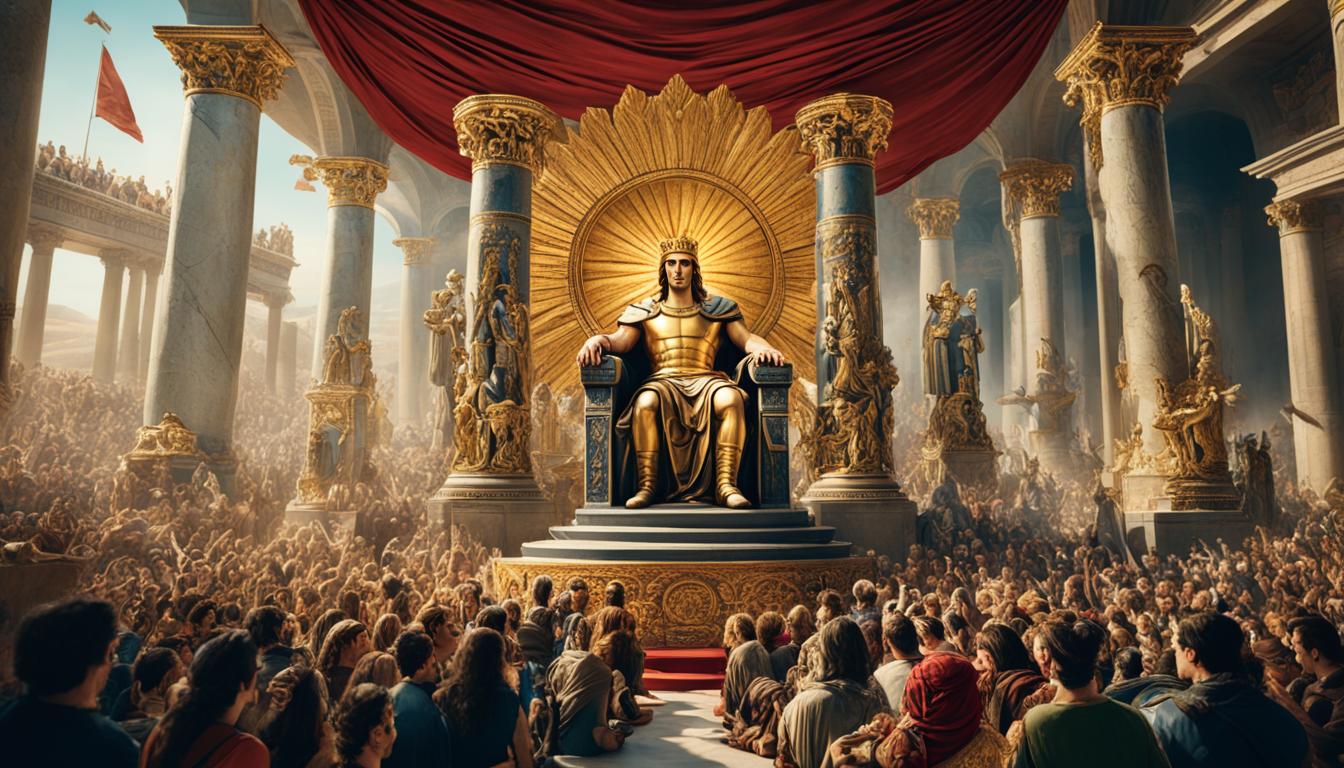Alexander the Great is a name that sparks a lot of debate in the world of alternative history. He was born in 356 B.C.E. in Pella and went on to achieve great military victories. After his father, Philip II, was killed in 336 B.C.E., Alexander took over and showed his skills in battles like the Battle of Chaeronea. He learned from Aristotle, which helped him dream of a big, connected empire.
This piece looks at what might have happened if Alexander had lived a long life and brought his empire together. We explore how his continued rule could have changed history. By looking at important events and his possible plans, we dive into a story of both success and challenges in his big dreams.
Key Takeaways
- Alexander the Great is a key figure in alternative history.
- His military wins and learning from Aristotle shaped his legacy.
- His long reign could have changed the world.
- Looking into these ideas helps us understand history better.
- Uniting his empire might have affected future societies.
The Legacy of Alexander the Great
Alexander’s impact went far beyond his military wins. It mixed with the culture of Eastern and Western societies. His campaigns changed the world, starting a new era of empire-building. The Hellenistic influence he brought led to cultural exchanges, blending art, philosophy, and innovation.

Alexander won big in Persia, Egypt, and parts of India. He brought Greek culture to new places. This mix of cultures shows in his military conquests. He used his tactics to connect different civilizations. The cities he founded became centers of new ideas, showing the lasting effect of Hellenistic influence.
His leadership and diplomacy led to cultural exchanges that lasted long after he was gone. By marrying soldiers to local women, he mixed traditions. This mix changed social structures in conquered areas. It set a pattern for future empires, shaping history.
Today, we still feel Alexander’s influence. His vision of empire-building has shaped leaders throughout history. Scholars still talk about his conquests and their effects on the world. They even compare them to important events in American history, like the Declaration of Independence.
What if Alexander the Great had lived to old age and consolidated his empire?
Thinking about Alexander the Great living longer is really interesting. If he had lived longer, he might have changed how he ruled, fought wars, and managed his huge empire. Being older could have made him more thoughtful in his decisions, leading to a more stable and united empire.
With Persia’s riches, Alexander could have pushed forward in military tech and logistics across the Mediterranean. This could have led to a bigger empire and a deeper understanding of the cultures he ruled over. He might have built strong local alliances, creating a lasting peace.
Running a big empire is hard. Alexander might have used different political systems and local leaders to keep the peace. His new ideas could have led to big changes in how he ruled, making his legacy one of both strength and peace.
Alternative History: The Scenarios of Consolidation
Imagine a world where Alexander the Great united his lands into one empire. This idea leads to interesting historical scenarios. If he had lived, he would have faced big governance challenges. He needed to keep control over many different cultures.
He would have had to find ways to blend these cultures together. This meant using Persian influence could have been key. By using Persian ways of governing, Alexander might have made ruling easier. He could have used local leaders to help him make and carry out policies.
In this other world, meeting people like Chandragupta could have changed history. Alexander might have spread Hellenistic culture even further. This would have changed politics and culture in South Asia, mixing new ideas and traditions.
This idea of a united Macedonian empire opens up many possibilities. It shows how history could have turned out differently with better governance and cultural mixing. Thinking about Alexander’s early plans helps us see how his empire could have changed, both inside and outside his borders.
For more on how history could have turned out, check out this resource. It talks about how different historical events could have connected in big ways.
Potential Challenges of a Unified Empire
A unified empire under Alexander the Great sounds exciting but comes with big challenges. Managing a huge area with different cultures, languages, and customs would be tough. Alexander would need to balance respecting local ways with a strong central rule. His success depended on making policies that kept new populations loyal and peaceful.
Local cultures might resist a unified empire. Regions had their own histories and identities, leading to conflicts with Alexander’s rule. If local customs and imperial rules didn’t match, dissent could grow. This could threaten Alexander’s dream of a unified empire.
History shows that military overextension is another big problem. Alexander’s empire would need a lot of military power to protect itself and keep order. If his military got too spread out, his empire could become vulnerable. Dealing with threats from other powers would be key to his empire’s success or failure.

Leave a Reply